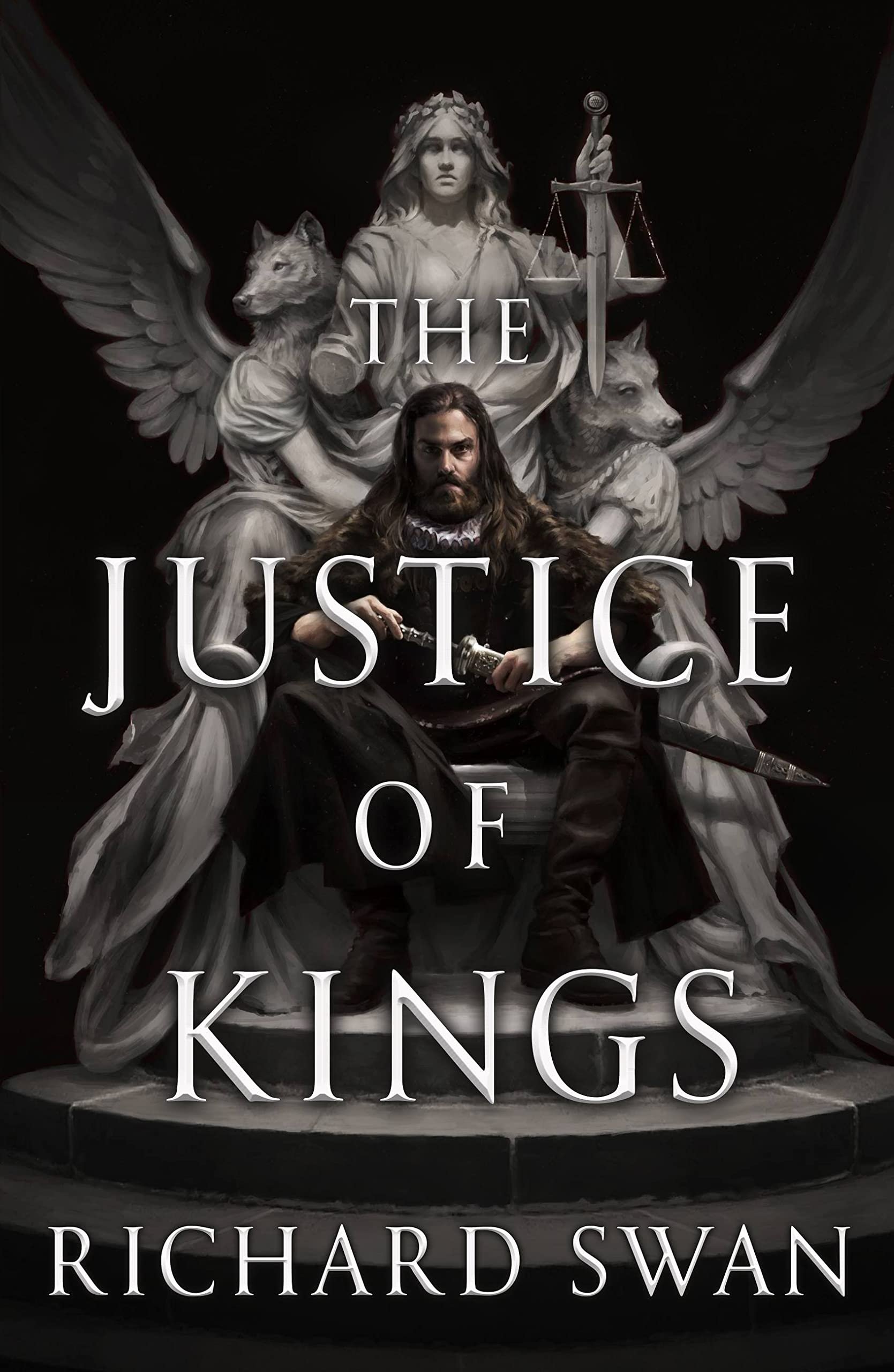The Justice of Kings
Richard Swan's The Justice of Kings follows the exploits and travails of Konrad Vonvalt, a "Justice" of the Emperor--essentially a traveling magistrate entrusted with occult powers to ferret out the truth and make sound judgements on legal matters in accordance with secular law.
Although the story concerns Vonvalt's character arc, it is told to us by his clerk, a woman named Helena. In the narrative she is relating, she is a young and petulant woman of nineteen. She's had a difficult life of hardscrabble survival, and at this point in her life she is unsure whether she wants to pursue the path to becoming a Justice herself or if she'd like to leave Vonvalt's service. Of course, Helena scarcely has time to consider her options as a seemingly routine murder investigation involves the protagonists in a conspiracy with ramifications that threaten to shake the Empire's stability.
While not heavy-handed, the narrative does draw on some fairly heady themes, such as the conflict between secular and religious doctrines, the maintenance required by the imperial project, and the many ways in which faith in the law can falter when presented by factions that don't play by "the rules" or when troubled by a personal need for vengeance. One thing I loved about The Justice of Kings is that a seemingly minor encounter early in the novel paves the way for upending Vonvalt's sense of self and a shattering of the lens through which he views the world. The impact of the shift in Vonvalt's character is magnified because we see it through Helena's eyes; she both idolizes and fears Vonvalt, so his reshaping feels like the world has been utterly exploded--which may, in fact, be an accurate reading of the Empire given the events of the novel.
The Justice of Kings reminded me a bit of the Eisenhorn novels by Dan Abnett. Vonvalt and his retinue are the servants of an Empire, enlisted to maintain order even where order is faulty or oppressive; though the Justices of the novel are secular forces rather than religious inquisitors, the effect is much the same. The powers wielded by Vonvalt, such as the ability to make the guilty confess through mental assault and necromancy that lays questions to the dead, are very similar to the psychic abilities and auto-seance wielded by Eisenhorn. Conspiracies, supernatural in origin but based in the cravenness of man, abound in both. Both are also firmly in the dark fantasy mode, so expect blood, violence, treachery, and don’t get too attached to characters—death is certainly on the table.
Perhaps most importantly: the first book in each series made me want to read the rest of them, no questions asked. I don't really consider myself a "Series Guy," and I'm often put off by the daunting notion of a trilogy, but I ordered the sequel to The Justice of Kings as soon as I finished it.

